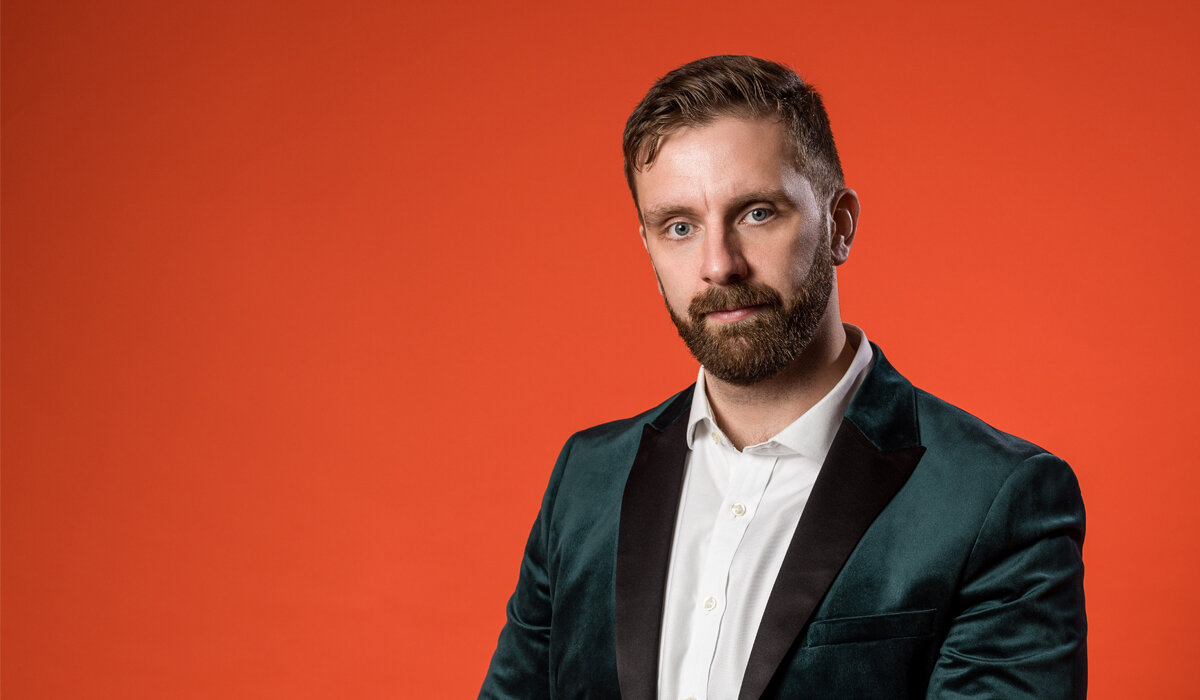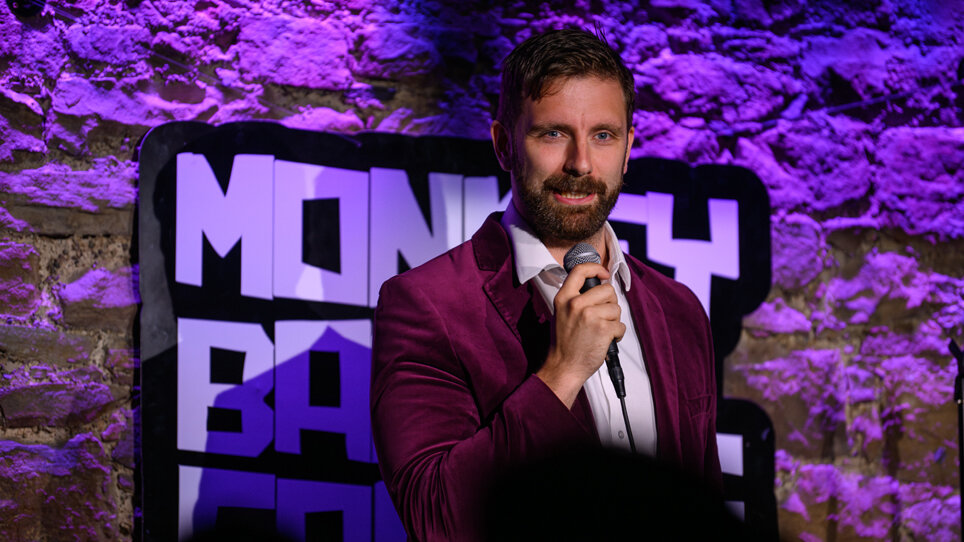
"I was as ignorant as any neurotypical, despite being autistic."
Stand-up comic Pierre Novellie
– on being heckled into a diagnosis, learning about autism from scratch and writing a book about it.
Your diagnosis journey didn’t quite start out the same way as most people. When did you first know or start to think you were autistic?
I was doing a gig in Bristol with new material for my show ‘Why can’t I just enjoy things?’ All the material was focused on either my social failures or areas where I did not get on well with most people. I was wondering why that was the case when a chap in the front row said: “Well, I have Asperger’s, and I think you have Asperger’s.”
We joked around and discussed it for a bit, but then moved on. It was later, on the train home, that I started looking into it. I’ve been heckled many times in my career, but never this specifically. In all honesty, it was not the first time someone had suggested it.
However, I felt the dawning realisation/possibility of autism specifically when I was reading more personal accounts of autism on forums and the National Autistic Society website. Actual experiences, well-recounted, were far more useful than crude diagnostic criteria. I also knew I was different to other people from when I was a young child.
What was the diagnosis process like for you? What did it mean when you got your diagnosis?
Unlike many people, I was lucky enough to go private, so the process was very smooth. I think the idea of a four or five-year-long waiting list might have made me give up.
When I got my diagnosis, it was a relief. By that point, I was certain that I was autistic, and it answered all the questions I had about myself, so I didn’t want my answers taken away.
Did getting a diagnosis change your approach to stand-up comedy?
Yes, but not drastically: after all, I was already working professionally. It has changed my approach to writing, since now I know for sure there are some observations that neurotypical people will never understand.
It has also underlined my need to use my face and body more onstage, to be more expressive. It has also made me more wary of interactions with producers, since I am more aware of the risks and likelihood of miscommunication.
Could you talk a bit about your book, ‘Why can’t I just enjoy things: a comedian’s guide to autism’? What inspired you to write the book and share your observations?
If autism stereotypes were correct, I should be literally unable to make a career of observational comedy, but I do. Therefore, I must be pretty good at making autistic thoughts funny and palatable to the whole population.
I also noted that most autism books were either brilliant memoirs or cold medical instructions not aimed at autistic adults themselves. I thought how useful it would be to write an autism guide that was factual, funny and mainly aimed at autistic adults or their friends, family and loved ones.
Since getting your diagnosis and writing this book, what things have you learned about autism that you didn’t know before?
Almost all of it!
I had never heard of alexithymia, for example, and I had no idea a meltdown could be internal or silent. I did not have a solid grasp of what the autism spectrum was. Basically, the entire contents of the book. I was as ignorant as any neurotypical, despite being autistic.

Image © David Monteith-Hodge Photographise
What was the impact of getting a late diagnosis for you?
I am far better at explaining myself to others, understanding my strengths and limitations and living a more sustainable life. The lateness of it means I can, or have had to, re-analyse my whole life up until the age of 31. It has made a LOT of stuff make a lot more sense.
What is one thing you would like more people to understand about autism?
If I had a magic wand, I would make non-autistic people understand that we do not speak in riddles like they do. We are not looking to be interpreted in the same way, or rarely, and we find them putting words in our mouths very stressful.
What does autism acceptance mean to you?
Autism acceptance means an easier life, less stress, less constant confusion and worrying because non-autistic people are now doing some of the lifting.
Pierre’s new show, ‘Must We?’, will be in London in 2025. Find out more and see his upcoming tour dates.
